This time I look out of context. Apparently. I am recovering “something” from few years ago because the last of the two protagonists of this story passed away in November Twenty Twenty because of the love for his people: father Angelo Iacono, a priest. He joined his sister Pierina, not even too long after her. With them this story is over. Or not? For now I am proposing it again in the way I told you. With dedication.
To Pierina e Father Angelo Iacono
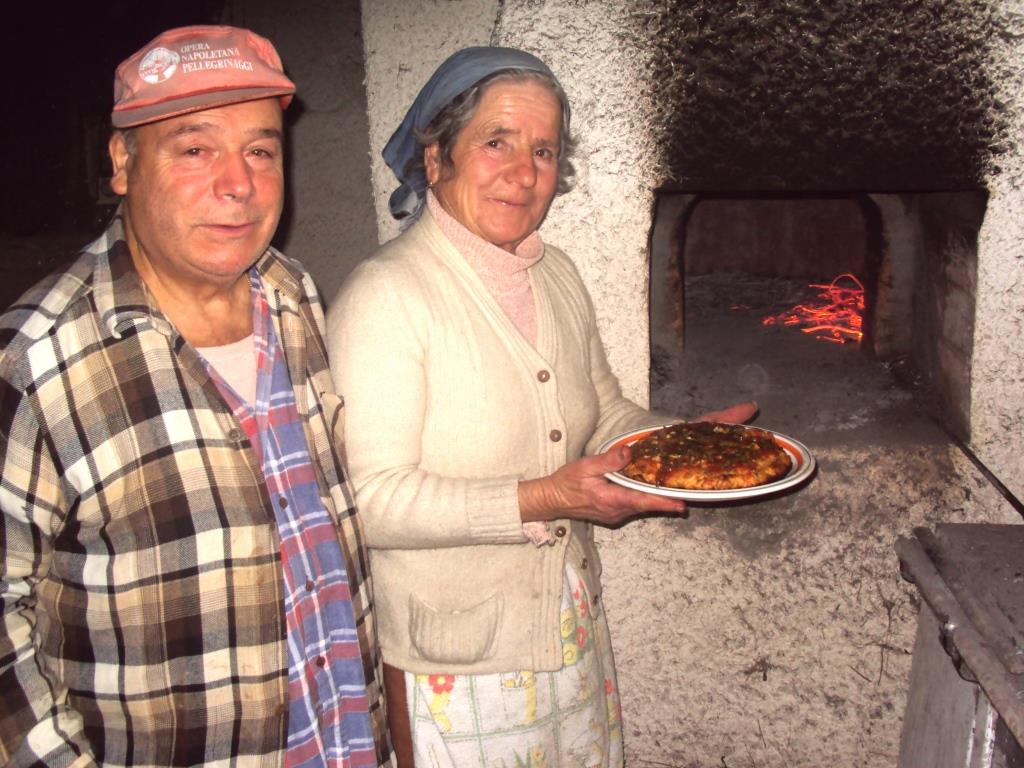 The earth is full of rubbish, and nature has rebelled. We need to return to the old work systems, in the sense that we need to go to the land with a new mentality, actually with the respect of the past”. When we meet in the cellar, my friends, while finishing eating their piece of rabbit, punctually implore me to convince myself “not to give up”. They repeat it, toasting. But they are not unprepared. They are outraged, but they keep it for themselves. Looking suspiciously the new outrages, the lobbies in ambush, of indebted and sterile, who plunder the ideas, who make the machete rotate to get the slice of landscape which, meanwhile, send help signs. Last time, at the table, in a joint table, between women and men, we fought over the last “scagliuozzi” (Italian dialect to indicate “small pieces”) of red flour: evocative tastes. In the meantime, a cold thundercloud was enveloping the night of our refuge. A winter atmosphere, ideal for telling ourselves that there are women and men still climbing among the schiappe , the terraces supported by drywalls (parracine), with pruning shears; and they jump down from the puoje, the southern hills, the embankments that modulate the slopes with clay and grass.
The earth is full of rubbish, and nature has rebelled. We need to return to the old work systems, in the sense that we need to go to the land with a new mentality, actually with the respect of the past”. When we meet in the cellar, my friends, while finishing eating their piece of rabbit, punctually implore me to convince myself “not to give up”. They repeat it, toasting. But they are not unprepared. They are outraged, but they keep it for themselves. Looking suspiciously the new outrages, the lobbies in ambush, of indebted and sterile, who plunder the ideas, who make the machete rotate to get the slice of landscape which, meanwhile, send help signs. Last time, at the table, in a joint table, between women and men, we fought over the last “scagliuozzi” (Italian dialect to indicate “small pieces”) of red flour: evocative tastes. In the meantime, a cold thundercloud was enveloping the night of our refuge. A winter atmosphere, ideal for telling ourselves that there are women and men still climbing among the schiappe , the terraces supported by drywalls (parracine), with pruning shears; and they jump down from the puoje, the southern hills, the embankments that modulate the slopes with clay and grass. 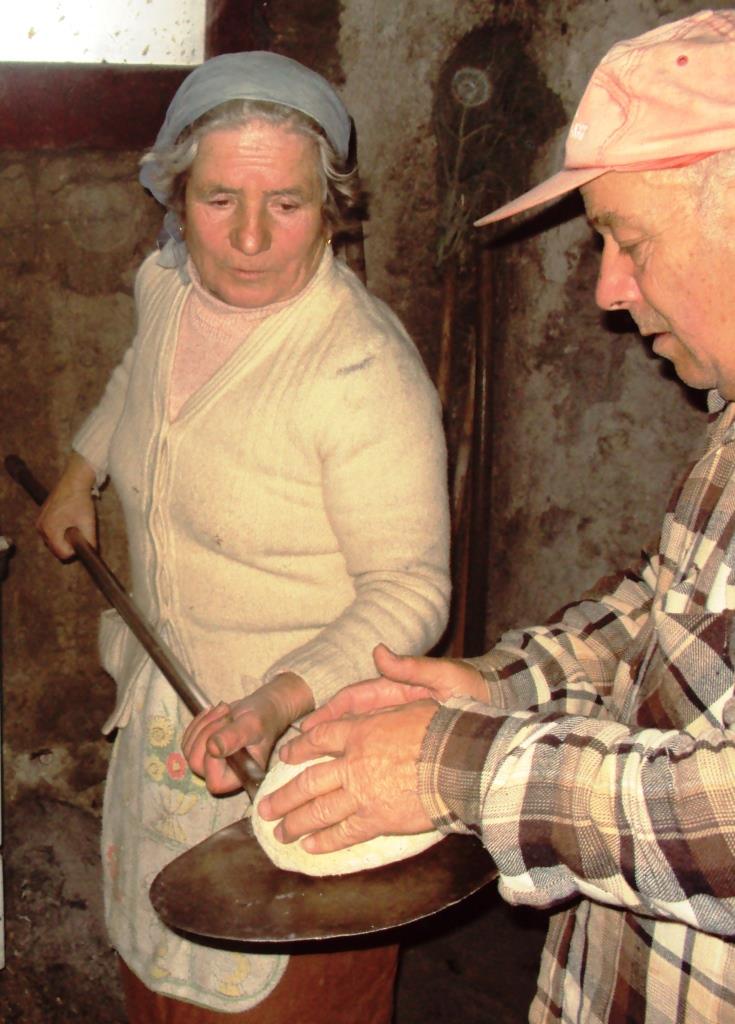 Here they are, my friends, they are not old. And, although age is already advanced, however they did not get old prematurely. They caress the plots they hoed with the agility of those who love fertility, as the generator of all kind of good. “The good is not a small talk”, they insist. And it cannot be limited to greediness - to self-avid stuff from which Giovanni Verga distilled his fictional blood of the so-called “Verism” - to the point of promiscuously impregnating it. "They married in the family, between relatives, in order not to divide the property, split it, disperse it among undesirable heirs." We stare into each other's eyes. This happened in a time that, not only in Ischia, is quite close. Time of storms, testimonies and testaments. "Not anymore," repeat those who share my echo that glimpses the other, in an "other" Time.
Here they are, my friends, they are not old. And, although age is already advanced, however they did not get old prematurely. They caress the plots they hoed with the agility of those who love fertility, as the generator of all kind of good. “The good is not a small talk”, they insist. And it cannot be limited to greediness - to self-avid stuff from which Giovanni Verga distilled his fictional blood of the so-called “Verism” - to the point of promiscuously impregnating it. "They married in the family, between relatives, in order not to divide the property, split it, disperse it among undesirable heirs." We stare into each other's eyes. This happened in a time that, not only in Ischia, is quite close. Time of storms, testimonies and testaments. "Not anymore," repeat those who share my echo that glimpses the other, in an "other" Time.
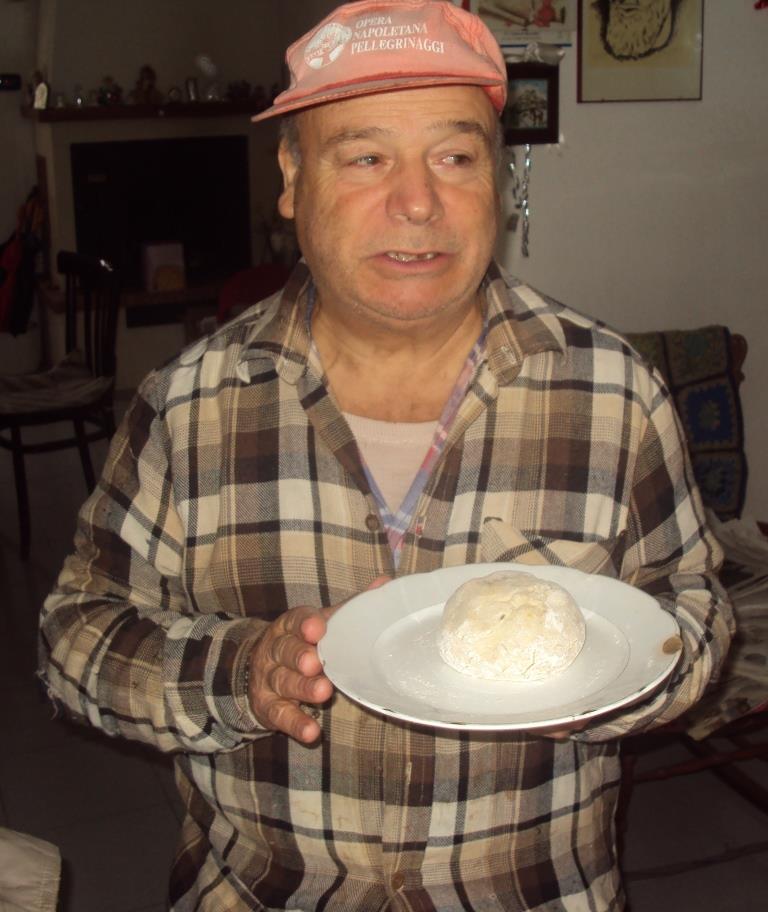 On December 31, 2009
On December 31, 2009 that time stopped on the hills of Serrara, guarded by Epomeo with its scattered boulders in the balance. I met him well before the afternoon. At least so it seemed to me, because the sun had not yet taken possession of all eyes. Mine and Angelo's one, or rather
FatherAngelo Iacono, the priest… who had been waiting for me for weeks.
In order not to miss the appointment, I slipped into an alley on the steep slope that leads to the oblique plateaus. To the west, they support the wedge of Kalimera, between small settlements that dominate the coastlines from Sant'Angelo to the Maronti, in a succession of glimpses, centuries-old stratifications and scents of aromatic and healing herbs that have never moved from there. I am sure.
It is here that the Time of a different life inhabits, that challenges the days struck by the noise of the brute chronology. I silenced the internal calendar countdown that morning. Of course, the fact that I had accepted that heartfelt invitation to rediscover the deep emotions of the sanctified nature by Ischia inhabitants, precisely on the last day of the year, had thrown on my eyes some sprays of estrangement. But it was like a moist euphoria on edge.
From that day I have memorised the appeal not to forget the high origins of sheep farmers and vine growers; and of “carusella” wheat farmers which, thanks to the spikes with slightly hairless bushes, so caruso, reinserts the island’s food adventures in the wide hemisphere of the crossings and encounters happened who knows when. That wheat has landed - right: who knows when? - on the island, and it most likely came from Old Cilento, from the internal area of the strip bordering on the coastal platforms of
Acciaroli up to
Pioppi, which is the small village where the very famous allied-American doctor Ancel Keys invented the
Mediterranean Diet, after the War. Interesting coincidences.
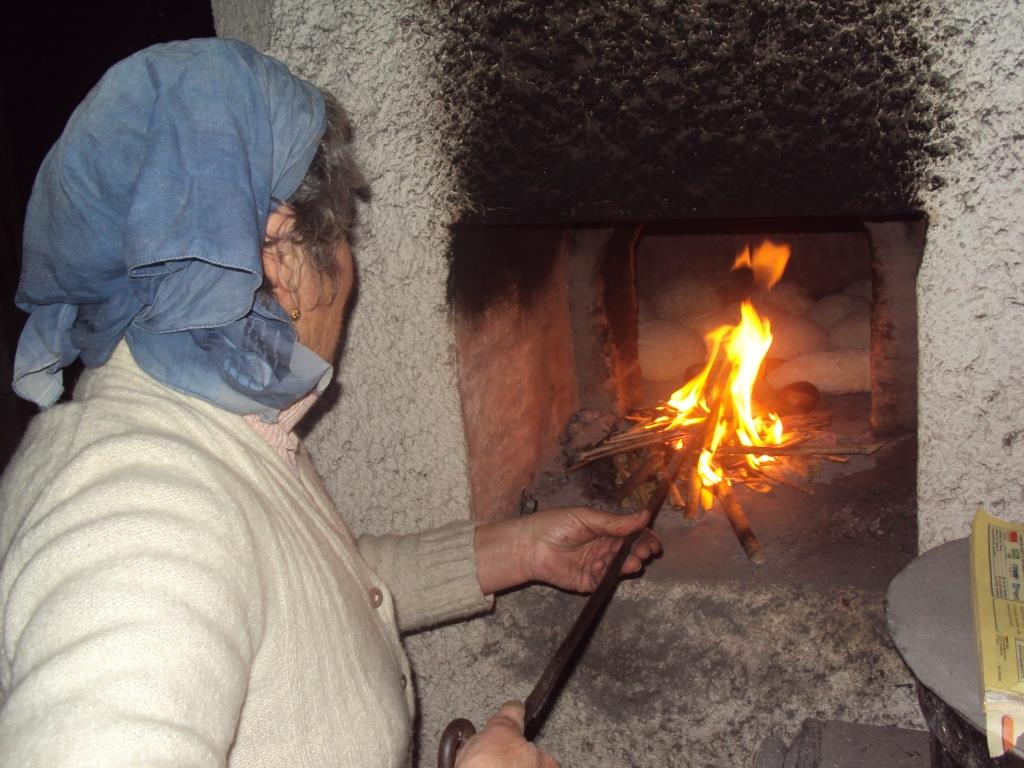
And here, again in Serrara, I bent to the will of the gatherers bowing to a
chicory, or to a
chard that you eat with your eyes, for how beautiful it is; not far from the corn cobs, a “real” corn not even touched by the puffs of a possible controlled mutation. I slipped into a concentration of resistances to the terrible transformations, specific to an out-of-place modernity. However, suggestively, that rarefied and suspended dimension greeted the arrival of the new year. Of all the new years a thousand miles away from the whirlwind of the festive and touristy New Year.
That greeting was entrusted to the most authentic, symbolic and concrete food: bread. A bread that is mixed with mother yeast - the criscito (in Neapolitan dialect) - which is preserved and handed down for generations, in the same place and by the same hands.
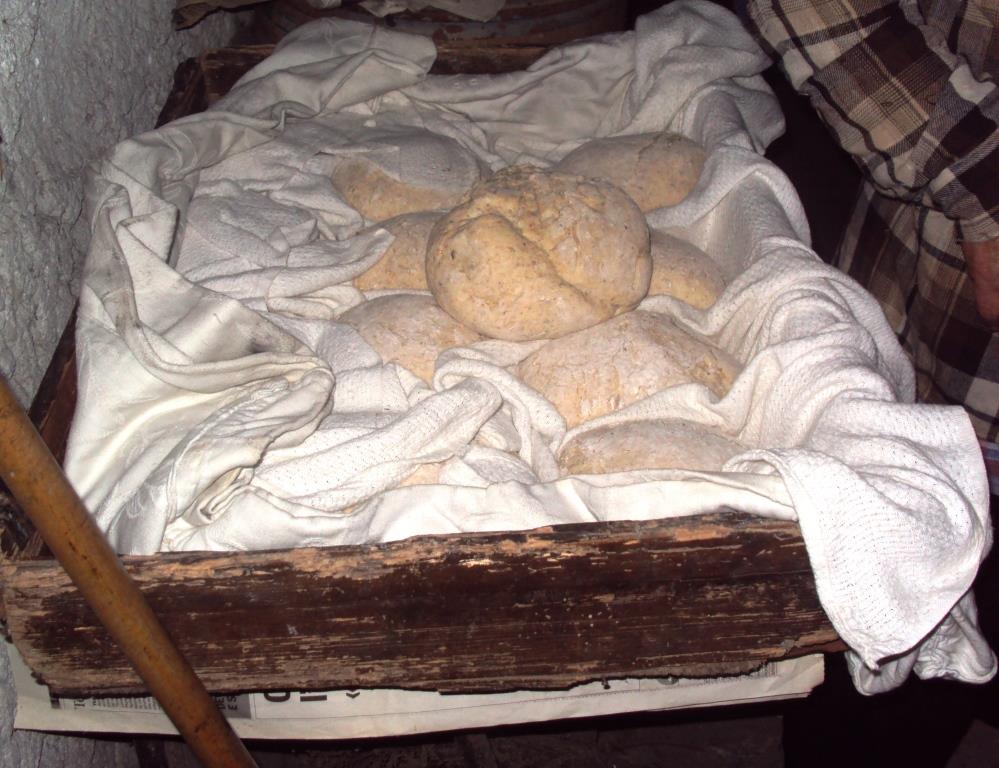
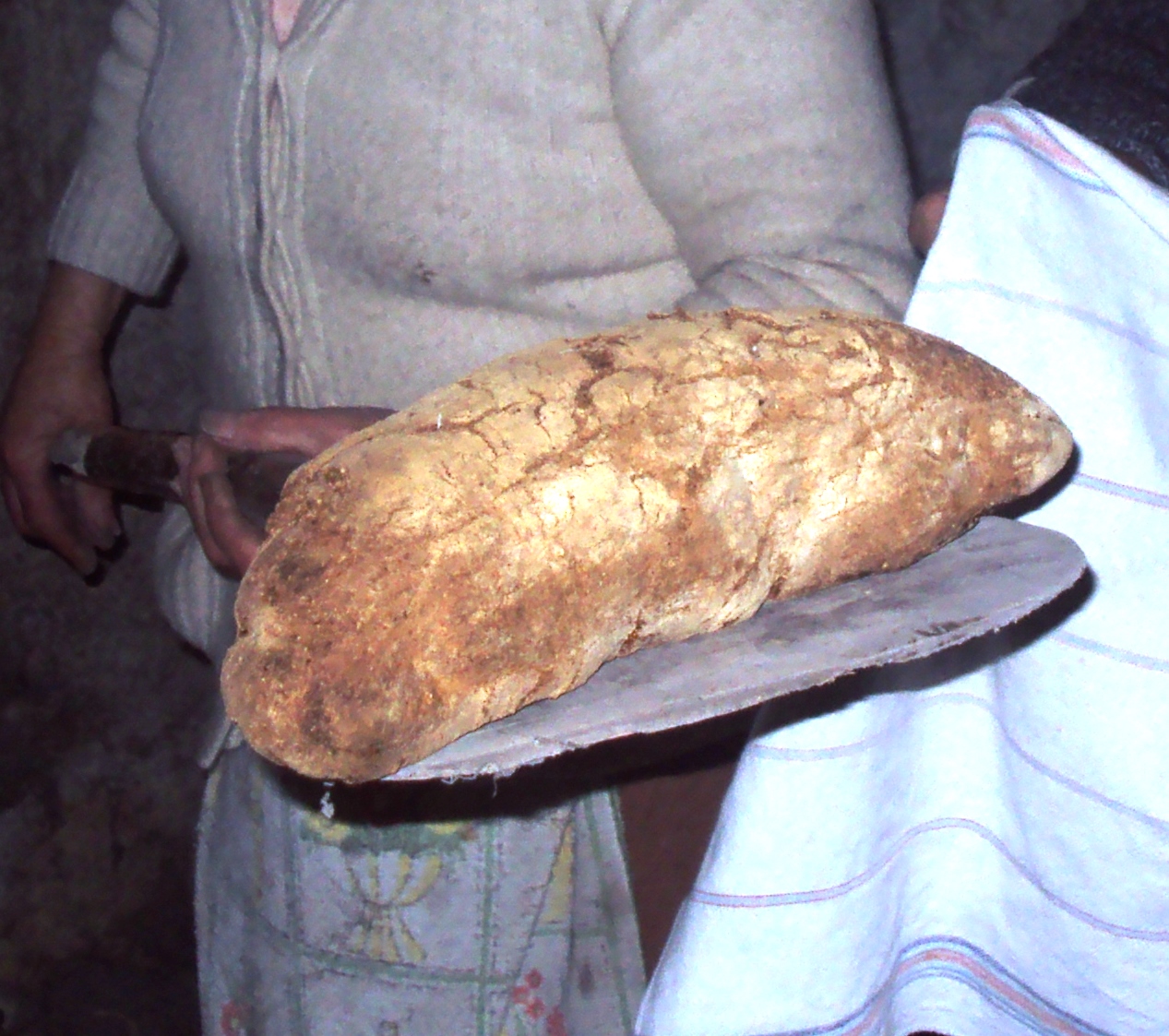 Pierina Iacono
Pierina Iacono was 76 when I met her, she was not married, and she lives with her brother Angelo, who is five years younger and is the parish priest of the
Ciglio church. Both received from their mother Lucia - who lived until the age of 97 - that yeast of the identity. And they continue to work it, transforming it into loafs, baking it. Always with the same ritual.
Both received from their mother Lucia - who lived until the age of 97 - that yeast of the identity. And they continue to work it, transforming it into loafs, baking it. Always with the same ritual.
“I woke up at five o’clock in the morning - Pierina explained to me - and I prepared the dough with the broken corn flour, which I grow, and the wild fennel harvested in inaccessible areas. Then I worked the shapes and I put them to rest in the wooden cupboard. I heated the old oven with the dried shoots of the vines. Before baking, I made pizza with garlic, oregano, all of our production, and honey mushrooms grown near a stump in the garden. I set them aside with oil and chilly”.
The pizza? Unique. Extraordinary.
“I do everything by myself, like the ancient anticorium”, Pierina added, with a joke that distorted the Latin a little, but still gives an incredible strength to the story.
After a couple hours, the bread was also ready.
“I notice that it is now cooked, touching the door of the oven, made from a piece of slab in wrought lapillus”.
Golden, magnificent loaves.
“You can keep them in the pantry easily for four weeks”, father Angelo murmured, as if he was confessing to me.
“But have you tried this bread soaked in wine?” Pierina pressed.
Frames from the past.
“All this is meant to end”, remembered Father Angelo with a smile.
But Pierina didn’t listen to him. Then and now. While, in the still hot oven, she quickly puts in a lot of hazelnuts. A snack, toasting to the future.
(2015 Original text - from my book “Mille orti in mezzo al mare” - Ad Est dell’Equatore publisher)


 On December 31, 2009 that time stopped on the hills of Serrara, guarded by Epomeo with its scattered boulders in the balance. I met him well before the afternoon. At least so it seemed to me, because the sun had not yet taken possession of all eyes. Mine and Angelo's one, or rather FatherAngelo Iacono, the priest… who had been waiting for me for weeks.
On December 31, 2009 that time stopped on the hills of Serrara, guarded by Epomeo with its scattered boulders in the balance. I met him well before the afternoon. At least so it seemed to me, because the sun had not yet taken possession of all eyes. Mine and Angelo's one, or rather FatherAngelo Iacono, the priest… who had been waiting for me for weeks. And here, again in Serrara, I bent to the will of the gatherers bowing to a chicory, or to a chard that you eat with your eyes, for how beautiful it is; not far from the corn cobs, a “real” corn not even touched by the puffs of a possible controlled mutation. I slipped into a concentration of resistances to the terrible transformations, specific to an out-of-place modernity. However, suggestively, that rarefied and suspended dimension greeted the arrival of the new year. Of all the new years a thousand miles away from the whirlwind of the festive and touristy New Year.
And here, again in Serrara, I bent to the will of the gatherers bowing to a chicory, or to a chard that you eat with your eyes, for how beautiful it is; not far from the corn cobs, a “real” corn not even touched by the puffs of a possible controlled mutation. I slipped into a concentration of resistances to the terrible transformations, specific to an out-of-place modernity. However, suggestively, that rarefied and suspended dimension greeted the arrival of the new year. Of all the new years a thousand miles away from the whirlwind of the festive and touristy New Year.
 Pierina Iacono was 76 when I met her, she was not married, and she lives with her brother Angelo, who is five years younger and is the parish priest of the Ciglio church. Both received from their mother Lucia - who lived until the age of 97 - that yeast of the identity. And they continue to work it, transforming it into loafs, baking it. Always with the same ritual.
Pierina Iacono was 76 when I met her, she was not married, and she lives with her brother Angelo, who is five years younger and is the parish priest of the Ciglio church. Both received from their mother Lucia - who lived until the age of 97 - that yeast of the identity. And they continue to work it, transforming it into loafs, baking it. Always with the same ritual.

Comments powered by CComment